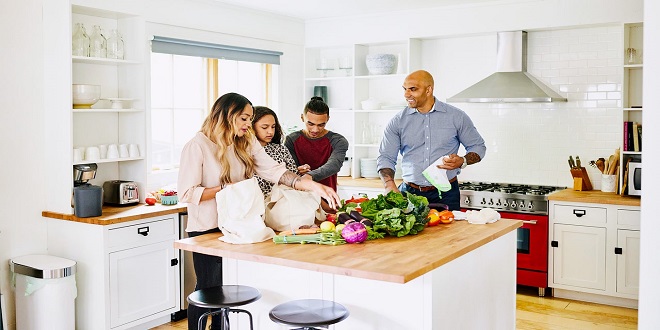When you purchase a home, you may feel relieved once the down payment is made and your mortgage is determined. However, you can’t get too comfortable yet. Owning a home involves many other expenses, all needing a place in your budget.
Here are seven things to include as you create your homeowner’s budget.
- Maintenance Expenses
Houses require upkeep. Sometimes the expenses are minor — a new flapper for the toilet, for example — and sometimes, they are significant. You don’t want to be caught by surprise when facing a sudden major expense.
Experts recommend keeping 1%-4% of your house’s value for maintenance expenses. That way, if a tree limb falls and puts a hole in your roof or you need to purchase a water softener, you won’t have to pull money from somewhere else or put it on your credit card.
- Property Taxes
You can research public records to find out how much your property taxes are. Depending on your mortgage terms and down payment amount, these taxes may be escrowed along with private mortgage insurance in your monthly payment. However, if you put 20% or more toward a down payment, you may have to pay this bill outright a couple of times yearly.
Property taxes may fluctuate through the years. If your home value is reassessed, you may have an increase or decrease.
- Utility Bills
You may be accustomed to paying utilities already. Some landlords include utilities in their monthly rent prices, but others pass the expense directly to the renter. If you aren’t used to paying utilities, it’s an expense you’ll need to budget.
You may have separate bills for:
- Water
- Sewer
- Trash pickup
- Electric and gas services
Some cities combine water and sewer utilities into one account.
- HOA Fees
You may have purchased a home within the district of a neighborhood association. If so, you’ll be required to pay homeowners’ association fees. Fees vary by neighborhood, but they can add around $200 monthly to your expenses.
HOA fees pay for neighborhood amenities, security, shared features and other costs associated with your area.
- Homeowners Insurance
You may have had a renters insurance policy before. Now that you own a house, you’ll need homeowners insurance. This is another payment that may be included in your mortgage. If not, you’ll need to plan on paying it monthly, quarterly or at the rate you decide on with your agent.
Homeowners insurance covers you against fire, storm damage, theft, vandalism and similar situations. It also protects you against liability if someone gets injured on your property. What and how much your insurance covers depends on the policy you purchase. Your deductible amount also influences your monthly premiums. Check with your agent to find out exactly what’s covered.
- Flood Insurance
Many new homeowners are surprised to learn that flood insurance is separate from homeowners insurance. Floods are not covered in a typical home insurance policy. This insurance covers your losses if you have a storm surge or sewer backup.
The government provides flood insurance through the National Flood Insurance Program. You can obtain a policy through a private insurer. While you are not legally required to have a policy, it can be an excellent investment, especially if you live in a flood-prone area.
- Remodeling Expenses
Maybe you were lucky enough to purchase a new home or one that’s been remodeled. If so, you might not have to do any revamping or repair work. Many new homeowners buy a place that needs some maintenance or remodeling. You may want to put on a fresh coat of paint, replace old carpeting or landscape the front yard. Whether you tackle all your projects at once or do them gradually, you’ll need money to cover the costs.
Buying a home is exciting, but it can be expensive. Be sure to determine the costs of owning a home as you create your budget so that you won’t be surprised when faced with these expenses.
 Naasongs.fun
Naasongs.fun




